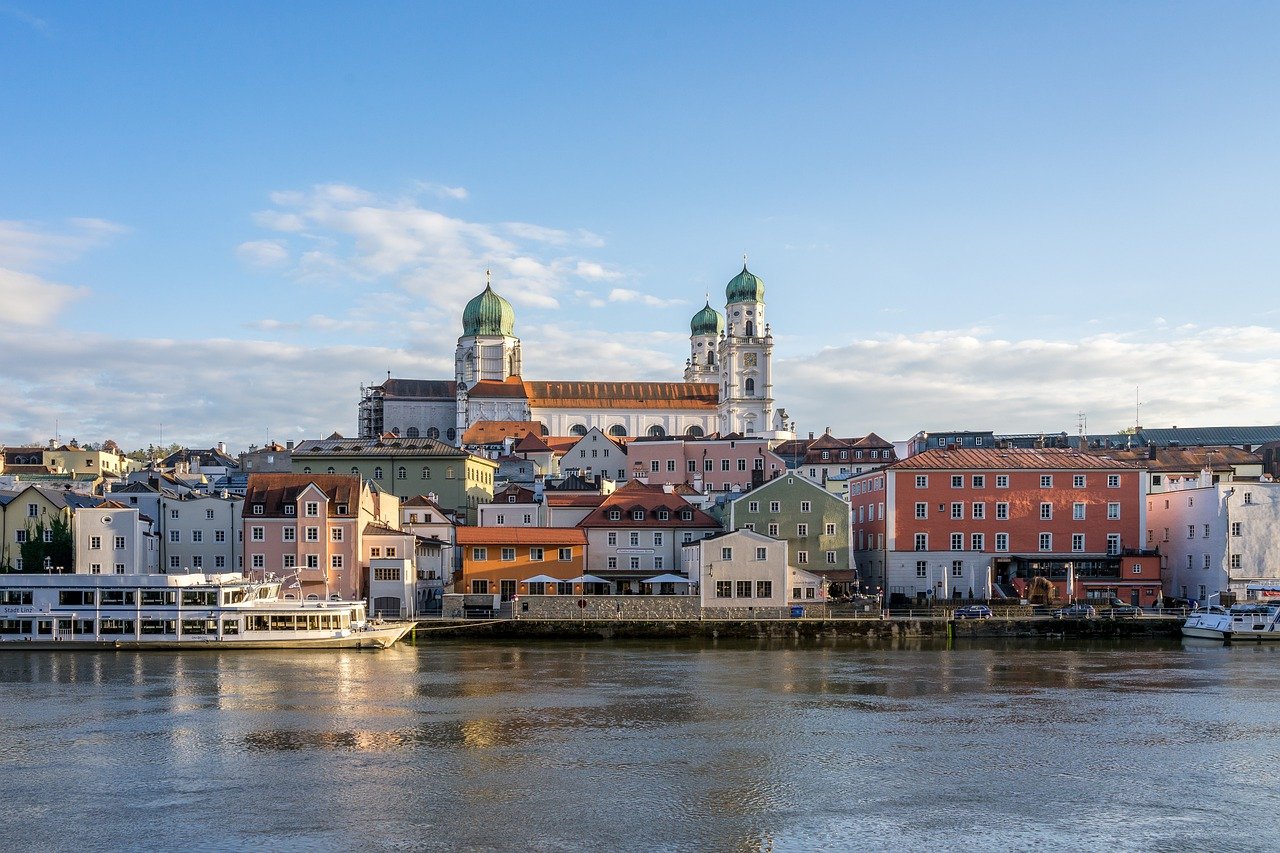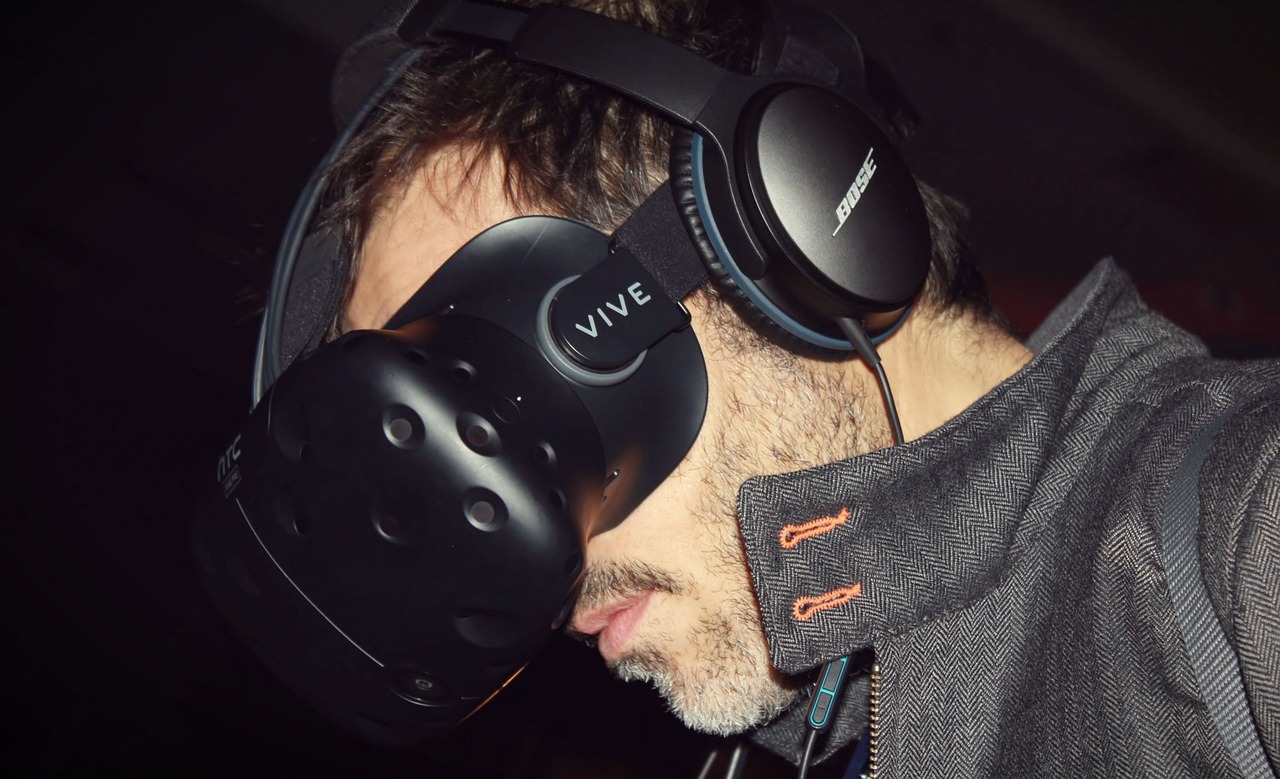The Trend of Immersive Travel Experiences Through VR
Virtual reality (VR) has taken the travel industry by storm, offering a revolutionary way for users to immerse themselves in travel experiences without leaving the comfort of their homes. Through VR technology, individuals can embark on virtual tours of famous landmarks, participate in immersive cultural activities, and even go on virtual wildlife safaris, all from the convenience of a headset.
One of the most exciting aspects of VR in travel is the ability to explore iconic landmarks like the Eiffel Tower or the Great Wall of China through virtual tours. Users can experience these destinations in a realistic and interactive way, almost feeling as if they are physically present at the site. The level of detail and immersion provided by VR is truly remarkable, offering a unique perspective on these renowned places.
Moreover, VR platforms now offer users the opportunity to engage in immersive cultural experiences, such as taking part in traditional dances, attending cooking classes, or even joining festivals from around the world. These experiences not only entertain but also educate users about different cultures, fostering a deeper understanding and appreciation for global diversity.
For travelers considering a cruise or a vacation, VR has become a valuable tool for previewing destinations and accommodations. Virtual reality cruises provide users with virtual ship tours and interactive experiences at various destinations, enabling them to make more informed decisions before booking their trips. This immersive preview enhances the planning process and ensures that travelers have a clearer idea of what to expect.
Furthermore, virtual reality tools are transforming the way people plan their travels by offering a more engaging exploration of accommodations, attractions, and transportation options. By immersing users in virtual environments, these tools provide a more interactive and informative experience, ultimately leading to better-informed travel decisions.
As technology advances, interactive travel guides in virtual reality are becoming increasingly popular. These guides offer personalized recommendations, insider tips, and immersive experiences that enhance the overall journey. By providing users with tailored suggestions and virtual experiences, travel planning becomes more efficient and enjoyable.
Virtual reality is not only about sightseeing but also about promoting sustainable tourism practices. By offering virtual experiences that reduce the environmental impact of travel, VR encourages travelers to explore destinations in a more eco-conscious and responsible manner. This shift towards sustainable tourism aligns with the growing global awareness of environmental issues.
Looking ahead, the future prospects of VR in the travel industry are promising. From personalized travel experiences to virtual travel agents, the potential for VR to revolutionize the way people travel is vast. As technology continues to evolve, VR is expected to play a significant role in shaping the future of travel in the digital age, offering innovative solutions and unparalleled experiences to adventurers worldwide.

Virtual Tours of Famous Landmarks
Virtual reality technology has opened up a whole new world of possibilities for travelers, allowing them to embark on virtual tours of famous landmarks without leaving their homes. Imagine being able to stand at the base of the Eiffel Tower in Paris or walk along the Great Wall of China, all from the comfort of your living room. These virtual tours offer a realistic and immersive experience that closely mimics the feeling of actually being at these iconic sites.
Through VR, users can explore every nook and cranny of these famous landmarks, getting up close and personal with their intricate details and historical significance. The technology transports them to these destinations, providing a 360-degree view that makes them feel as if they are truly there. It's like having a private tour guide at your disposal, guiding you through these renowned sites with unparalleled depth and realism.
One of the most remarkable aspects of virtual tours of famous landmarks is the interactivity they offer. Users can engage with the environment, interact with elements, and even learn about the history and cultural significance of these places through informative pop-ups and audio guides. It's a truly engaging and educational experience that brings these iconic landmarks to life in a whole new way.

Immersive Cultural Experiences
Exploring how virtual reality is revolutionizing the travel industry, offering users immersive experiences from the comfort of their homes. From virtual tours of destinations to interactive cultural experiences, VR is reshaping the way people explore the world.
Discover how VR technology allows travelers to visit iconic landmarks like the Eiffel Tower or the Great Wall of China from anywhere in the world, providing a realistic and interactive experience that mimics being there in person.
Immerse yourself in the vibrant world of different cultures through virtual reality platforms. Experience traditional dances, cooking classes, and festivals as if you were right there, gaining a deeper understanding and appreciation for diverse cultural practices.
Embark on virtual cruises and explore exotic destinations through the lens of VR technology. Take virtual ship tours, experience the beauty of far-off lands, and make informed decisions about your next vacation from the comfort of your own home.
Revolutionize your travel planning process with virtual reality tools that offer immersive previews of accommodations, attractions, and transportation options. Make better-informed decisions and tailor your travel experiences to suit your preferences.
Access personalized travel recommendations, insider tips, and immersive experiences through interactive travel guides in virtual reality. Enhance your journey and streamline your travel planning process with engaging and informative VR content.
Embark on virtual wildlife safaris to witness animals in their natural habitats up close. Interact with wildlife, learn about conservation efforts, and promote eco-friendly travel practices through immersive VR experiences.
Experience destinations in a more eco-conscious manner through virtual reality, promoting sustainable tourism practices. Reduce your environmental impact while exploring the world and contribute to the preservation of natural resources.
Explore the endless possibilities of virtual reality in shaping the future of travel. From personalized travel experiences to virtual travel agents, VR is set to revolutionize the way we explore the world in the digital age.

Virtual Reality Cruises and Destinations
Exploring how virtual reality is revolutionizing the travel industry, offering users immersive experiences from the comfort of their homes. From virtual tours of destinations to interactive cultural experiences, VR is reshaping the way people explore the world.
Virtual reality has opened up a whole new world of possibilities for travelers, especially when it comes to experiencing cruises and destinations. Imagine being able to embark on a virtual ship tour, feeling the ocean breeze and exploring the luxurious amenities of a cruise ship right from your living room. With VR, travelers can also immerse themselves in the beauty of exotic destinations, from the crystal-clear waters of the Maldives to the bustling streets of Tokyo.
One of the most exciting aspects of virtual reality cruises is the ability to preview different itineraries and cruise ships before making a booking. Travelers can take virtual tours of cabins, restaurants, and entertainment facilities, helping them make more informed decisions about their upcoming vacations. This immersive experience not only enhances the planning process but also builds excitement for the trip ahead.
Moreover, virtual reality allows travelers to explore destinations in a way that goes beyond traditional travel brochures or websites. By putting on a VR headset, users can transport themselves to iconic landmarks, vibrant city streets, and breathtaking natural wonders, getting a taste of what each destination has to offer. Whether it's strolling through the historic streets of Rome or basking in the sun on a virtual beach in the Caribbean, VR brings travel experiences to life like never before.

Enhancing Travel Planning with VR
Virtual reality (VR) technology is revolutionizing the way travelers plan their trips, offering a more immersive and engaging experience. With VR tools, users can explore various aspects of their travel plans in a virtual environment, allowing for better decision-making and a more informed travel experience. Imagine being able to virtually walk through different hotel rooms, explore attractions, and even test out transportation options before making any bookings. VR enhances travel planning by providing a realistic preview of what to expect, helping travelers tailor their itineraries to their preferences and ensuring a smoother journey.
One of the key advantages of using VR for travel planning is the ability to experience destinations in a more interactive way. Instead of relying solely on photos and reviews, travelers can virtually immerse themselves in different locations, getting a feel for the atmosphere and layout before actually setting foot there. This not only saves time but also reduces the chances of unpleasant surprises during the trip. VR allows users to explore destinations from multiple angles, giving them a comprehensive view that goes beyond traditional travel resources.
Moreover, VR technology enables travelers to make more confident decisions when planning their trips. By virtually experiencing accommodations, attractions, and transportation options, users can assess the suitability of each aspect based on their preferences and needs. This hands-on approach to travel planning empowers individuals to create personalized itineraries that align with their interests, ensuring a more fulfilling and enjoyable travel experience.
Furthermore, VR enhances the collaboration and communication between travel companions during the planning process. By immersing themselves in virtual environments together, friends or family members can discuss and decide on various aspects of the trip in a more interactive and engaging manner. This shared experience fosters a sense of unity and excitement among travelers, setting the stage for a memorable journey ahead.
In conclusion, the integration of VR technology in travel planning offers a myriad of benefits, from providing realistic previews of destinations to enabling personalized itineraries. By leveraging the immersive capabilities of VR, travelers can make more informed decisions, tailor their trips to their preferences, and enhance the overall planning experience. As VR continues to evolve and become more accessible, it is poised to revolutionize the way people explore the world and plan their adventures.

Interactive Travel Guides in Virtual Reality
Virtual reality has taken travel planning to a whole new level with the introduction of interactive travel guides. These guides are not just your ordinary paper maps or static websites; they are dynamic, immersive experiences that put users right in the heart of their destination.
Imagine being able to explore the streets of Paris, hear the bustling sounds of the city, and even interact with locals, all from the comfort of your living room. Interactive travel guides in virtual reality offer a personalized touch to traditional travel planning, making it more engaging and informative.
Through these guides, users can receive personalized recommendations based on their interests, such as hidden gems, local eateries, or off-the-beaten-path attractions. This level of customization ensures that travelers can tailor their experiences to suit their preferences, creating a more memorable and fulfilling journey.
Moreover, interactive travel guides in virtual reality provide insider tips and local insights that go beyond what traditional guidebooks can offer. Users can learn about the history of a place, its cultural significance, and even pick up useful phrases in the local language, enhancing their overall travel experience.
These guides also allow travelers to virtually explore accommodations, transportation options, and popular landmarks, giving them a comprehensive overview of their destination before they even set foot there. This not only streamlines the travel planning process but also helps users make informed decisions about their itinerary.
Overall, interactive travel guides in virtual reality are revolutionizing the way people plan and experience travel. By combining cutting-edge technology with personalized recommendations and immersive experiences, these guides are shaping the future of travel exploration.

Virtual Reality Wildlife Safaris
Virtual Reality Wildlife Safaris are revolutionizing the way people experience nature and wildlife from the comfort of their homes. By donning a VR headset, users can embark on virtual safaris to observe and interact with animals in their natural habitats. From the vast savannas of Africa to the dense rainforests of South America, VR technology transports users to exotic locations, allowing them to witness the beauty and diversity of wildlife up close.
Imagine being able to stand mere feet away from a majestic lion as it roams the African plains, or diving deep into the ocean to swim alongside graceful sea turtles and colorful fish. Virtual Reality Wildlife Safaris offer a unique opportunity to explore the wonders of the natural world without disturbing or endangering the animals. It's a thrilling and educational experience that fosters a deeper appreciation for wildlife conservation and environmental protection.
Moreover, VR technology is not just limited to passive observation. Users can actively engage with the virtual environment, learning about animal behaviors, habitats, and conservation efforts through interactive experiences. Virtual Reality Wildlife Safaris serve as powerful tools for raising awareness about endangered species, habitat destruction, and the importance of preserving biodiversity for future generations.
Through the immersive power of virtual reality, individuals of all ages can embark on unforgettable journeys to remote corners of the globe, fostering a sense of connection and empathy towards the natural world. Whether it's tracking a herd of elephants across the African savanna or observing rare bird species in the Amazon rainforest, Virtual Reality Wildlife Safaris offer a truly transformative and eye-opening experience that transcends physical boundaries.

Virtual Reality and Sustainable Tourism
Virtual reality is not only transforming the way we travel but also promoting sustainable tourism practices. By offering virtual experiences that reduce the environmental impact of traditional travel, VR encourages travelers to explore destinations in a more eco-conscious and responsible manner. Through immersive virtual tours and experiences, users can visit natural wonders and cultural sites without physically traveling, thus minimizing their carbon footprint.
Moreover, virtual reality contributes to raising awareness about conservation efforts and wildlife protection. Virtual wildlife safaris allow users to observe and interact with animals in their natural habitats, fostering a deeper appreciation for wildlife and promoting eco-friendly travel practices. By experiencing the beauty of nature through VR, travelers can develop a stronger sense of environmental stewardship and support sustainable tourism initiatives.
Furthermore, virtual reality can play a significant role in educating travelers about sustainable practices and responsible travel behavior. Through interactive simulations and virtual experiences, users can learn about the importance of preserving natural resources, respecting local cultures, and minimizing their impact on the environment. By immersing themselves in virtual environments that promote sustainability, travelers can make more informed choices when planning their trips and contribute to the preservation of the planet.

Future Prospects of VR in the Travel Industry
As we look ahead to the future of the travel industry, the prospects of virtual reality (VR) are truly exhilarating. The potential for VR to completely transform the way we experience travel is immense, offering a myriad of exciting opportunities for both travelers and the industry as a whole. Imagine being able to step into a virtual world where you can explore exotic destinations, interact with locals, and immerse yourself in different cultures, all from the comfort of your own home.
One of the most exciting prospects of VR in the travel industry is the concept of personalized travel experiences. With VR technology, travelers can tailor their journeys to suit their preferences, from selecting specific activities and attractions to customizing their accommodations. This level of personalization not only enhances the overall travel experience but also ensures that travelers can make the most of their time and resources.
Furthermore, the integration of virtual travel agents powered by artificial intelligence (AI) is another promising aspect of VR in the travel industry. These virtual agents can assist travelers in planning their trips, providing recommendations based on their preferences, budget, and previous travel history. By leveraging AI and VR technologies, travelers can receive tailored suggestions and guidance, making the travel planning process more efficient and enjoyable.
Additionally, VR has the potential to revolutionize the way we explore destinations that are difficult to access or endangered. Through virtual reality, travelers can visit remote locations, historical sites, and natural wonders that may be off-limits or at risk in the physical world. This opens up a world of possibilities for experiencing unique and rare destinations in a sustainable and responsible manner.
Moreover, the future of VR in the travel industry holds promise for enhancing collaborations between different sectors, such as tourism, technology, and environmental conservation. By leveraging VR technology, organizations can work together to promote sustainable tourism practices, raise awareness about conservation efforts, and support eco-friendly travel initiatives. This collaborative approach not only benefits the environment but also enriches the travel experience for individuals seeking meaningful and impactful journeys.
Frequently Asked Questions
- What is immersive travel through VR?
Immersive travel through VR refers to the use of virtual reality technology to provide users with realistic and interactive travel experiences without physically being present at a destination. It allows individuals to explore famous landmarks, engage in cultural activities, and even go on virtual wildlife safaris from the comfort of their homes.
- How can virtual reality enhance travel planning?
Virtual reality enhances travel planning by offering users a more immersive way to research and experience potential travel destinations. Through VR tools, travelers can virtually tour accommodations, attractions, and transportation options, leading to better-informed decisions and a more engaging travel planning process.
- What are the future prospects of VR in the travel industry?
The future prospects of VR in the travel industry are vast, with potential advancements ranging from personalized travel experiences to virtual travel agents. VR is expected to continue revolutionizing the way people explore the world, offering innovative solutions for travel planning and immersive cultural experiences.



















